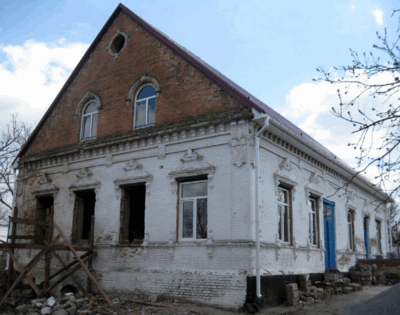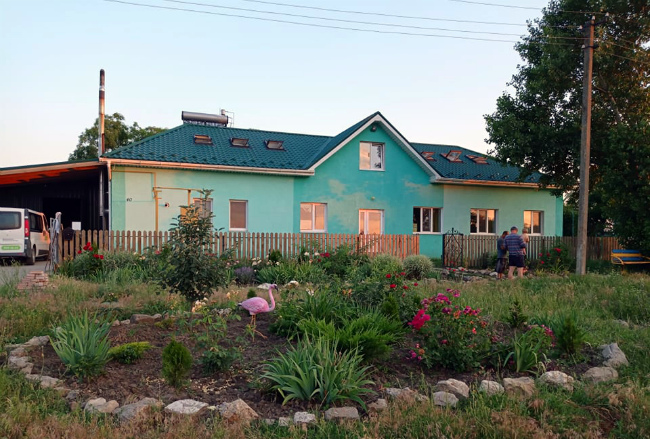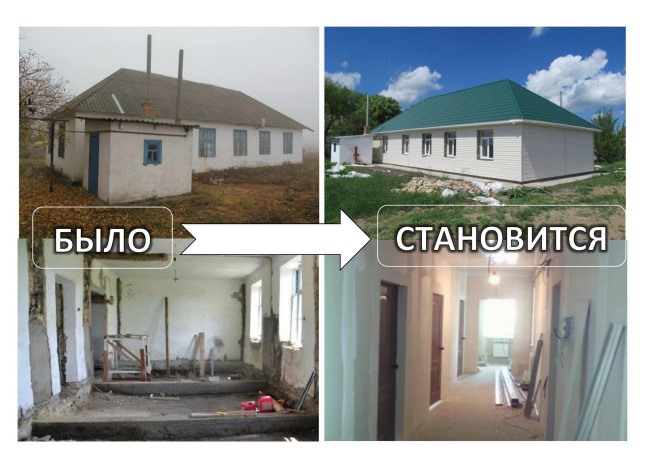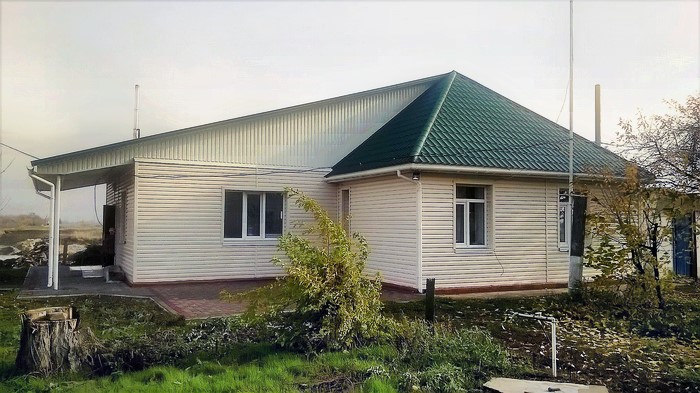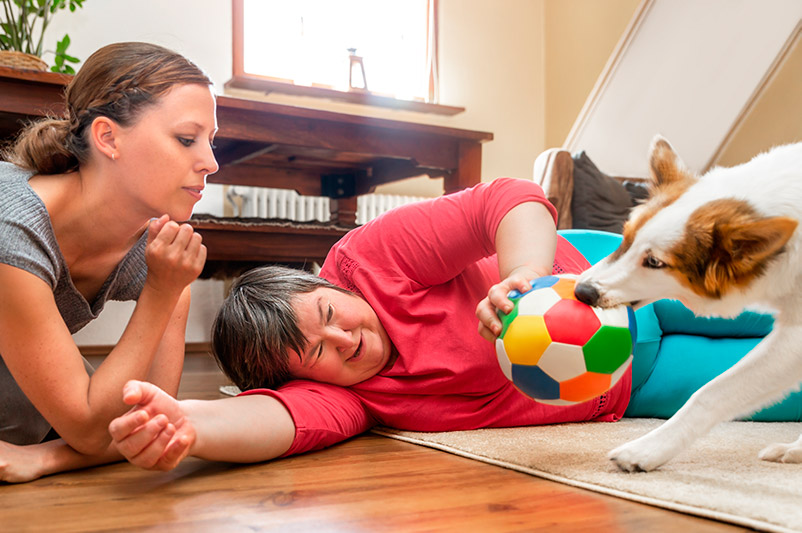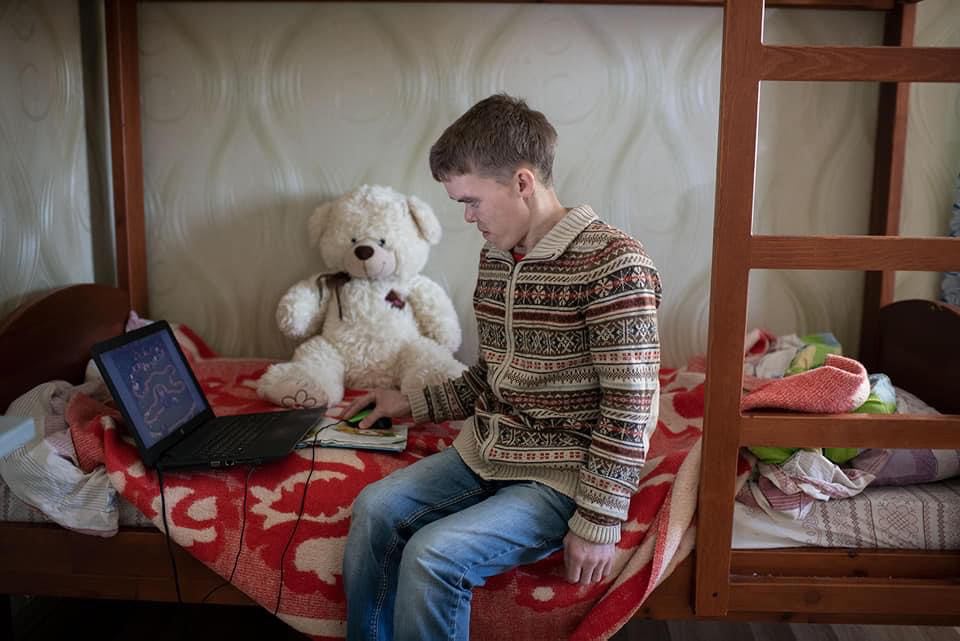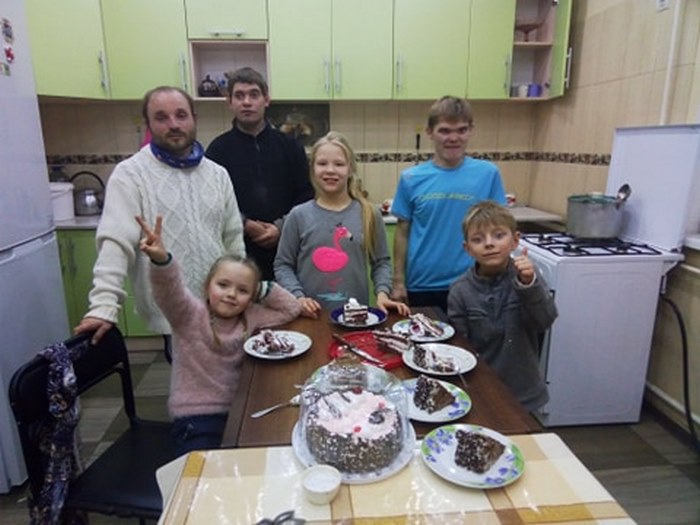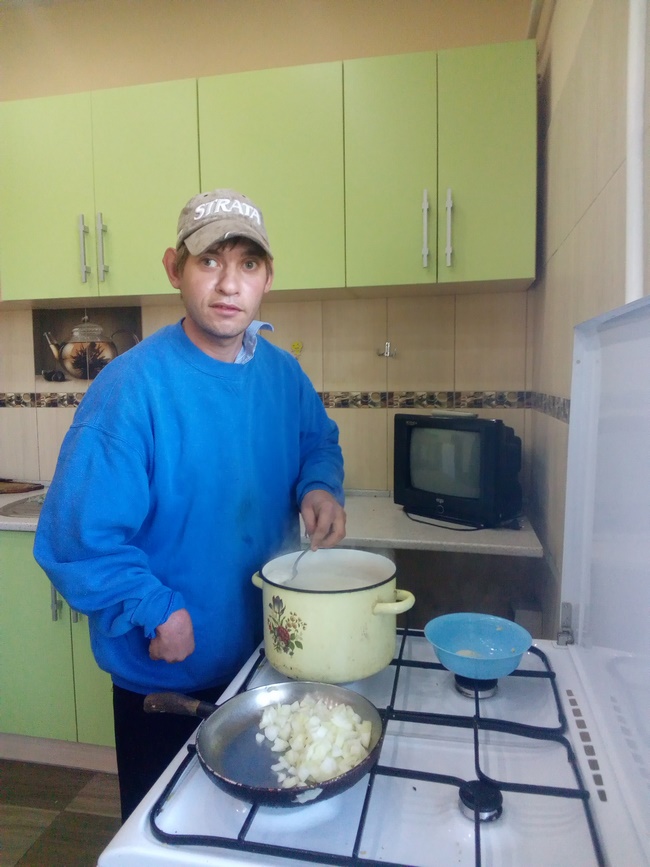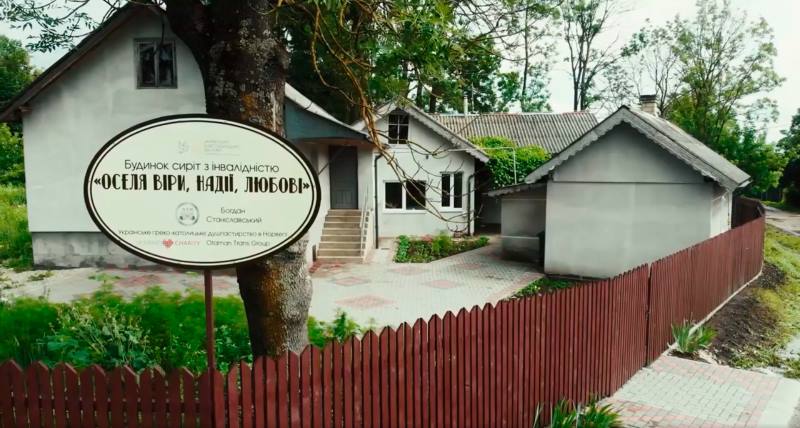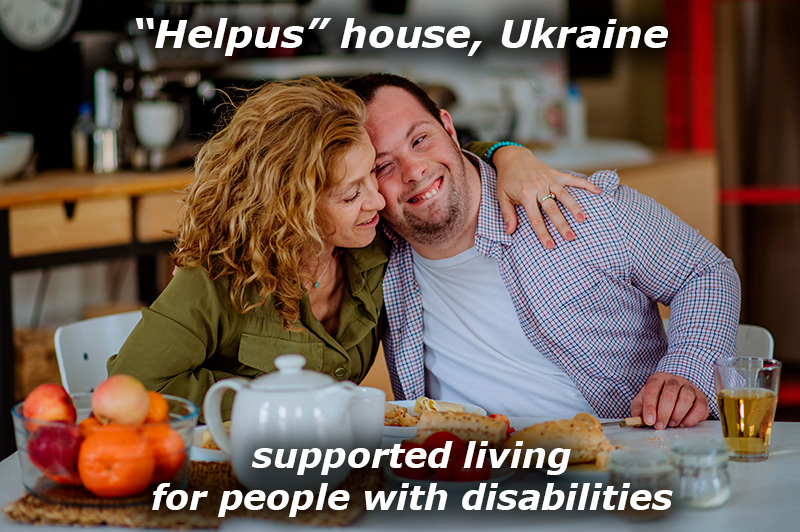
Did you know that in Ukraine about 40,000 people are sentenced to life imprisonment without a court verdict? We are talking about people who live in psycho-neurological institutions (PNI) and have mental and other types of disabilities. In these institutions people's rights are constantly violated. Congestion congestion (up to 30 people in a room), poor living conditions, isolation from society, lack of freedom of movement and personal space, lack of staff are just some of the problems faced by the inhabitants of PNI. Society is practically not interested in the lives of such people, psycho-neurological institutions for adults are rarely visited by volunteers.
Russia's aggression against Ukraine further exacerbated the problem, many boarding schools were evacuated or destroyed, or remained under occupation. The PNI of the western regions of Ukraine turned out to be overcrowded.
An alternative to psycho-neurological institutions for adults in Ukraine
Most developed countries abandoned the system of PNI and large psychiatric hospitals in favor of small (up to 10 people) supported living facilities.
In Ukraine, there was talk about the reform of the PNI only recently, in 2017 the standard of supported living was approved. Group houses for supported living are being created in Ukraine so far only by individual charitable foundations. The "Helpus" project plans to significantly increase the number of such houses and improve the lives of people with disabilities.
What we have already done
Since 2010, the "Helpus" and "Happy Child" charitable foundations have created 5 houses for children in the Zaporizhzhia region - orphans and young people with disabilities. We also provided assistance in creating a social adaptation house in the village. Shcherbynivka, Cherkasy region, social adaptation apartments near the Veseliv psycho-neurological institution. In addition, in the family of Albert Pavlov, the founder of the project, a former inhabitant of PNI has been living under their care for 7 years.
Houses created by the "Happy Child" and "Helpus" funds in the Zaporizhzhia region in 2011-2018
Helpus houses - a chance for people with disabilities
Instead of huge boarding houses, each of our Helpus-house will be able to accommodate 8-10 former inhabitants of the PNI. It will be a cozy building, no more than 2 people in a room, with a living room, a yard and a courtyard. Support to the inhabitants of the house will be provided by several assistants (working in shifts), a social worker-organizer and volunteers.
Initially, the homes will be focused primarily on able-bodied inhabitants with mental or physical disabilities who have self-care skills and are free of aggression or antisocial behavior. The following houses may be able to accommodate people with a more severe form of disability.
If possible, the inhabitants of the house will learn useful skills, get a job and learn to manage their finances independently.
The most adapted inhabitants can later start an independent life in society.
Advantages of a Helpus house compared to life in a psycho-neurological institution (PNI):
- cozy atmosphere;
- a smaller number of inhabitants per unit of area;
- openness to society, active involvement of volunteers, board of trustees;
- opportunity for training and employment of inhabitants;
- inhabitants participate in maintaining order in the house, preparing food, working in the yard;
- quality nutrition, better supply of medicines;
- energy-saving and eco-technologies, waste sorting and minimization of damage to the environment;
- better organization of leisure and recreation (excursions, health improvement).
Project budget
We plan to purchase several houses worth 40-50 thousand dollars. USA each, in relatively safe regions of Ukraine. About 5 thousand dollars. additionally, it will be necessary to equip the house with furniture and necessary equipment.
The current cost of maintaining one inhabitant of the house will be from 400 to 600 dollars. per month, including food, medicine, utilities, salary and taxes 4 round-the-clock assistants and 1 organizer-educator.
Living in the building will be free for its inhabitants.
In addition to charitable funds, in the future we plan to attract state funding in accordance with the Law "On Social Services".
Each new supported living home provides:
- a new quality of life for 8 people with disabilities (this is the main task!);
- 5-6 new jobs for citizens of Ukraine;
- monthly tax revenues to the budget from the salary fund;
- reduction of overcrowding in state PNI.
Stable financing is very important for the stable operation of the project. After all, opening another house, we do not have the right to close it due to financial problems. Therefore, we will be grateful if you can support the project with your MONTHLY charitable contributions. In turn, we guarantee full financial reporting and are always happy to see you as a guest!
In addition, you can help:
- as a volunteer for collecting funds or working with the inhabitants of the houses;
- provide appropriate housing for free or low-cost rent;
- help in the purchase or construction of houses;
- give away furniture, household or computer equipment for the house;
- provide food assistance;
- recreation centers, hotels, cultural institutions - help in improving or organizing leisure time;
- establish a container for collecting donations;
- to help in providing medical and dental care to the inhabitants of the houses.
We are always happy to answer any questions you may have. Write to us!

